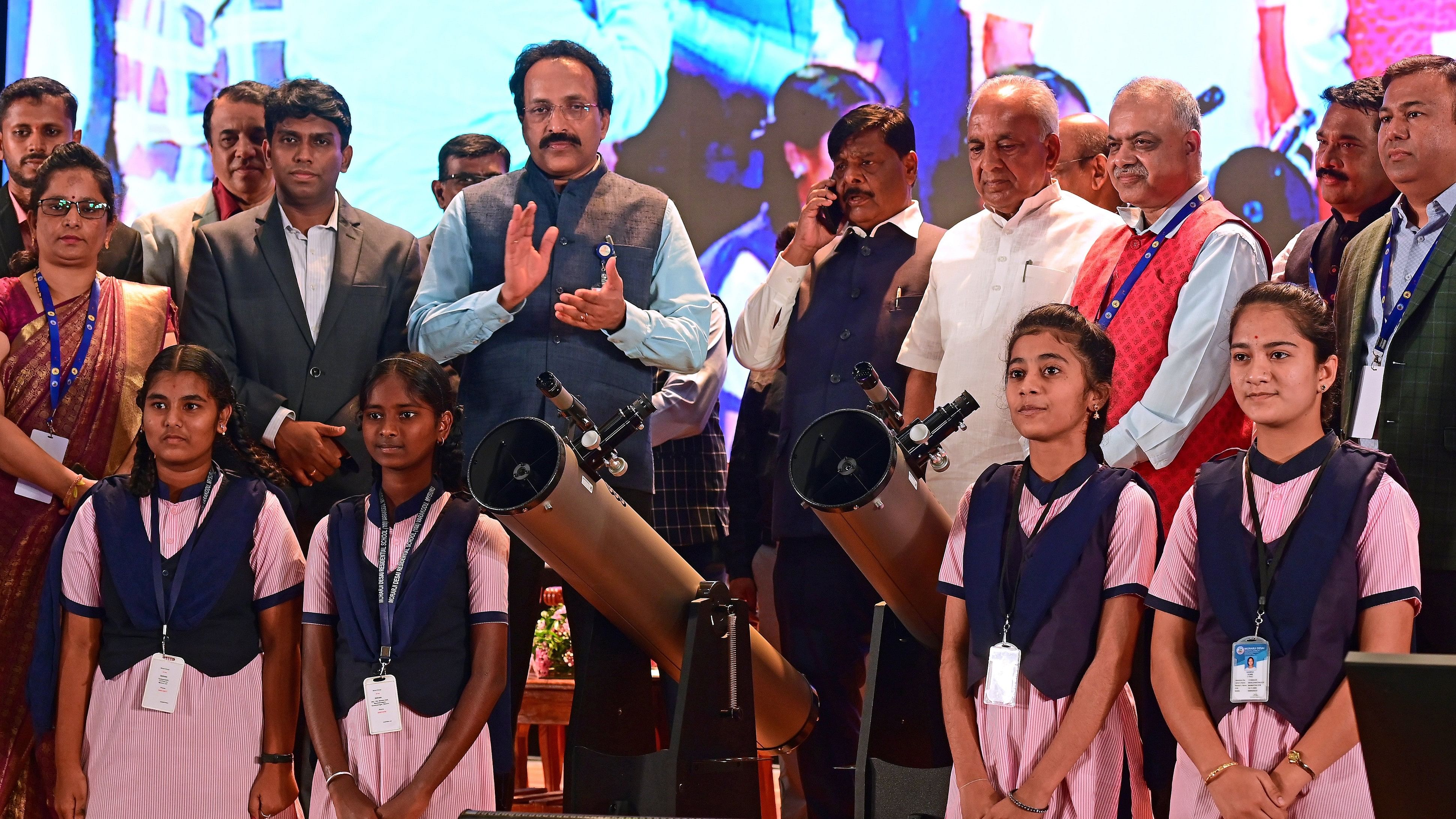
Indian Space Research Organisation Chairman S Somanath takes part in an interaction with teachers and students in Bengaluru on Tuesday. Ministers H C Mahadevappa and N S Boseraju are seen.
Credit: DH Photo/Ranju P
Bengaluru: Chairman of the Indian Space Research Organisation (ISRO) S Somanath on Tuesday made a case for collaboration with private players in the space sector, citing the insufficiency of budgetary allocation for the same.
In an interactive session organised by the Department of Social Welfare at the Karnataka Residential Educational Institutions’ Society (KRIES) that witnessed participation by students and teachers from more than 800 schools, Somanath said that the sum of Rs 12,000 crore allocated to the space sector was a “very small” amount.
“Hence, it is necessary to have collaboration with the private sector,” said the ISRO chief.
Substantiating his argument with the example of India’s planned voyage to the moon, Somanath said, “It is a costly affair, and we cannot depend solely on the government for funding. We must create business opportunities. If you have to sustain it, you have create a purpose for it. Otherwise, the government will tell you to close it down after something has already been created.”
The fact that, for every rupee spent by ISRO the return on investment was Rs 2.5, answered all questions about the agency’s contribution to society, Somanath said. ISRO was not in a race with other spacefaring nations, he said. Somanath said that the primary objective of ISRO was to be of service to the nation. “To achieve that, ISRO needed freedom to do what it wanted. That freedom could be achieved by creating an ecosystem for business opportunities in the space sector,” he said.
Somanath shared a number of anecdotes during a session where he also fielded a number of questions from students. He regaled the crowd with episodes from various stages of his life – as a student, and a scientist. Recalling the failure of the first SLV launch, Somanath said, “I was a young engineer on that team. We were all upset that the first SLV launch failed, and to overcome the pain and disappointment, we prepared LVM 3, of which I was the director.”
Emphasising the role teachers had played in his life, Somanath said, “My physics teacher in high school was a man named Rajan Babu, who told us many stories about science. This increased my interest in science. When I was in class 10, my teacher, Bhagiratamma, gave me IIT textbooks, which were a great help.”
Lessons learnt from the first failure can never be forgotten, the ISRO chief said. Queried about how one could become a space scientist, Somanath said, “One must cultivate an interest in science right from one’s schooldays. Students must be strong in science and mathematics; they must also study literature and social sciences.”
A book on stars he received as a gift from his father was one of the many fond reminiscences he shared with his audience. “I was just a normal village boy. I would often gaze at the stars, and ask my father about them. He noticed my interest, and got me a book, which helped me emerge a science topper in class 10,” Somanath added.
Besides ISRO, there were several leading institutions in the country engaged in scientific research, Somanath told the students. “IISc, IITs, NITs, CSIR are few of the institutions dedicated to science and research. There are many such institutions abroad as well. Students must choose the best institutions after they complete engineering,” the ISRO chief said.